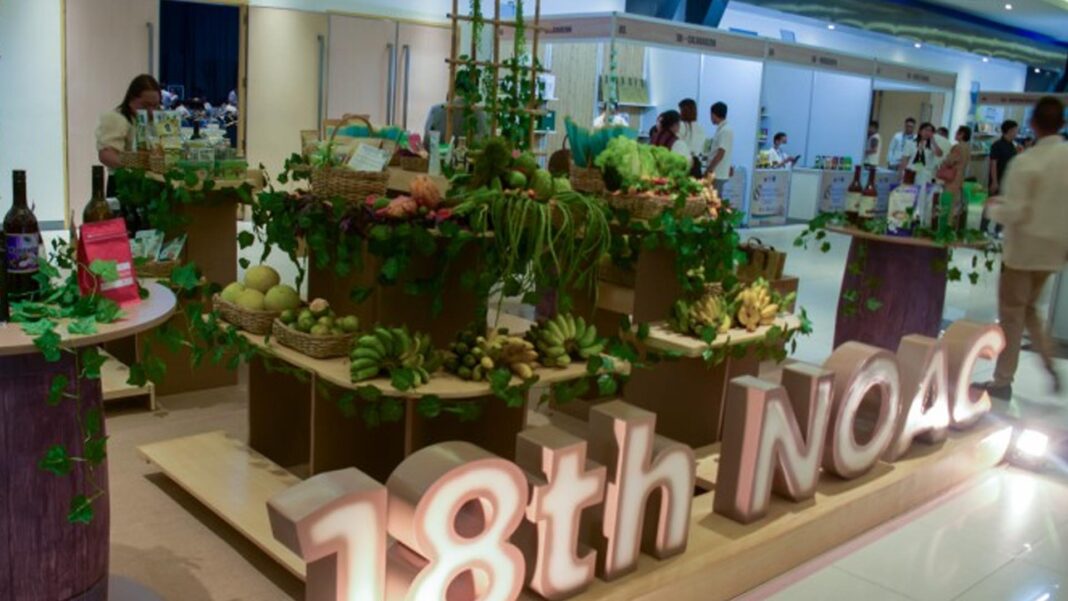The national government continues to push for the development of organic agriculture, highlighting the sector’s immense potential in creating income-generating opportunities while promoting long-term environmental sustainability.
This is the focus of the 18th National Organic Agriculture Congress (NOAC), organized under the Department of Agriculture (DA) National Organic Agriculture Program (NOAP), coinciding with the observance of the 11th Organic Agriculture Month, which opened at the SMX Convention Center here on Tuesday.
Themed “Kabuhayang OA, Kinabukasang OK: Halina at Kumita sa Organikong Agrikultura,” the three-day event serves as a venue to discuss ideas, innovations, and advocacies among hundreds of participants from across the country.
In his video keynote message, Senator Francisco Pangilinan urged advocates and officials to “continue to fight for a future where organic is the standard, not the exception, and establish an agriculture system that gives life, livelihood, and hope.”
“As chairman of the Senate committee on food, agriculture, and agrarian reform and as an organic farmer myself, I’m committed to continue pushing for policies that protect and empower our organic farmers, expand access to markets, strengthen support systems, and mainstream organic practices across the country,” he added.
Agriculture Secretary Francisco Tiu-Laurel Jr., in a message read by DA 6 (Western Visayas) Technical Director Zarlina Cuello, said organic agriculture is “more than a method, it is a promise to our health, to our land and the generations to come.”
“This year’s theme embodies our vision under Masaganang Bagong Pilipinas, a nation where sustainable livelihoods flourish, communities grow resilient, and the greener, healthier future is within our reach,” he added.
NOAP Director Bernadette San Juan said the DA-NOAP is committed to strengthening the organic agriculture sector with programs that provide livelihood projects, capacity building, support for women and youth in agriculture, and market development.
“We are laying the groundwork for an industry that is not only viable, but competitive. But government efforts alone will not be enough; what we need is what this congress represents – unity and collaboration among farmers, researchers, policy-makers, and agri-business,” she added.
Negros Occidental Governor Eugenio Jose Lacson said the 18th NOAC takes place at a time when many Filipino farmers continue to face significant challenges, particularly the severe impact of Typhoon Tino that gravely affected several agricultural communities in the province.
“More broadly, agriculture continues to confront climate change, rising production costs, soil degradation, and increasing demands for resilient and sustainable food systems. These realities make your participation in this Congress all the more meaningful,” Lacson told the participants.
Negrense organic farmer Ramon Uy Jr., president of Slow Food Asia and Pacific, said he is excited for the growth of the country’s organic agriculture sector over the years, sharing that he was one of the participants in the inaugural edition of the NOAC in 2006.
“We are thrilled to celebrate this event here in Bacolod, the slow food hub of Asia, and Negros Occidental, the organic capital of the Philippines. Slow food envisions a world where good, clean, and fair food is accessible to everyone. We share a vision aligned with the global organic movement, advocating for the transformation of our food systems to provide healthy and delicious food produced without chemicals, and fair for both farmers and consumers,” he added. (PNA)


